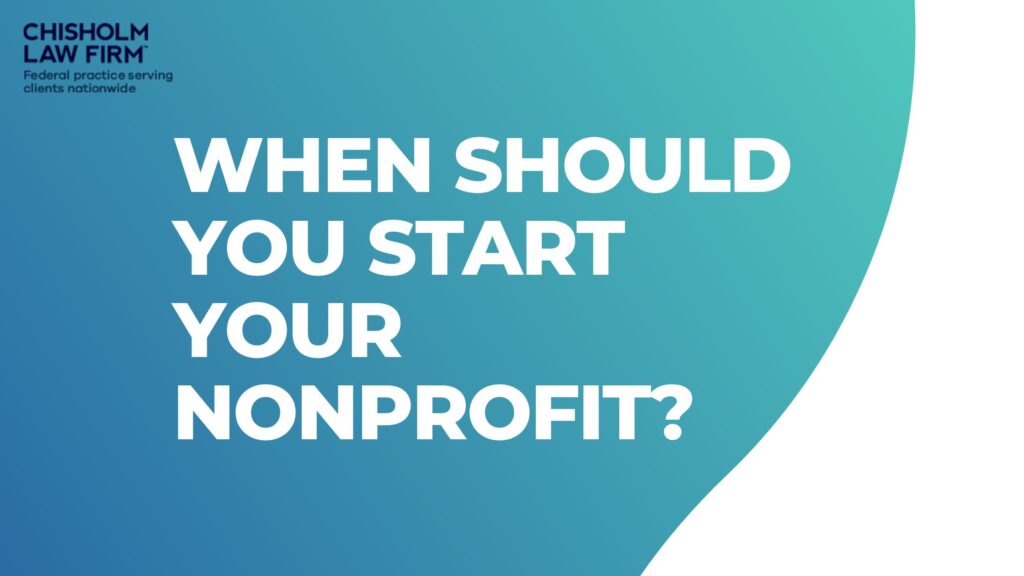
When Should You Start Your Nonprofit?
Now that you have a general understanding of what it takes to form your nonprofit, you’re probably wondering “how soon should I get started?” My law firm has many clients ranging from college students to executives, startup companies, community organizers, and professional athletes to Fortune 500 companies. Yet, the answer is typically the same for everyone.
Now. The best time to get started is now.
When to start a nonprofit
Oftentimes, people that I speak to that are considering starting a nonprofit think that the best time to get started is once they have everything figured out. They feel that they need a professionally written business plan, board directors, a name, built their website, have a six-figure budget as a result of their fundraising, etc. Now all of those things are great – but they certainly are not necessary for us to get started.
The reason we do not encourage folks to wait until they have everything figured out is because:
- Guidance – they will miss out on the value of having a nonprofit lawyer share best practices, answer questions and provide guidance that only a trusted advisor that has worked with countless nonprofits can offer.
We’ve had clients hire my firm that had spent hours working on things for their nonprofit only for us to glance at it and inform them that they did not need it, they did it wrong or share with them our process for it which they enthusiastically wanted to swap for theirs.
- Grants & Funding – Not everyone wants to seek outside funding for their nonprofit but if you do, grants will want to see your history with your nonprofit. This means that getting started now begins to build your history with the organization which is usually judged favorably over a nonprofit that is brand new and unproven. Which would you rather donate to? A brand new organization versus one that was at least already incorporated?
- I.R.S. Compliance – The I.R.S. has different filing requirements based on how long it took you after incorporating to apply for tax-exempt status. Their rules favor organizations that filed early aer starting the nonprofit.
- Liability Protection – Forming your nonprofit is an investment that pays for itself due to the protection from liability. Of all the clients I have represented, none of them ever expected to be sued. Knowing that your personal life savings are not at risk makes it more than a worthy investment.
- Professional Image – the professional image that forming your nonprofit gives your charity is a powerful incentive. Donors, vendors, volunteers, etc. tend to be more favorable toward organizations that have structured themselves the right way instead of organizations that have not.
However, in the worst case scenario, I certainly recommend forming your nonprofit no later than when you begin accepting money. Meaning, if you are asking for donations or raising money through events, then you want to make sure you are protected from liability.
Leave a Reply